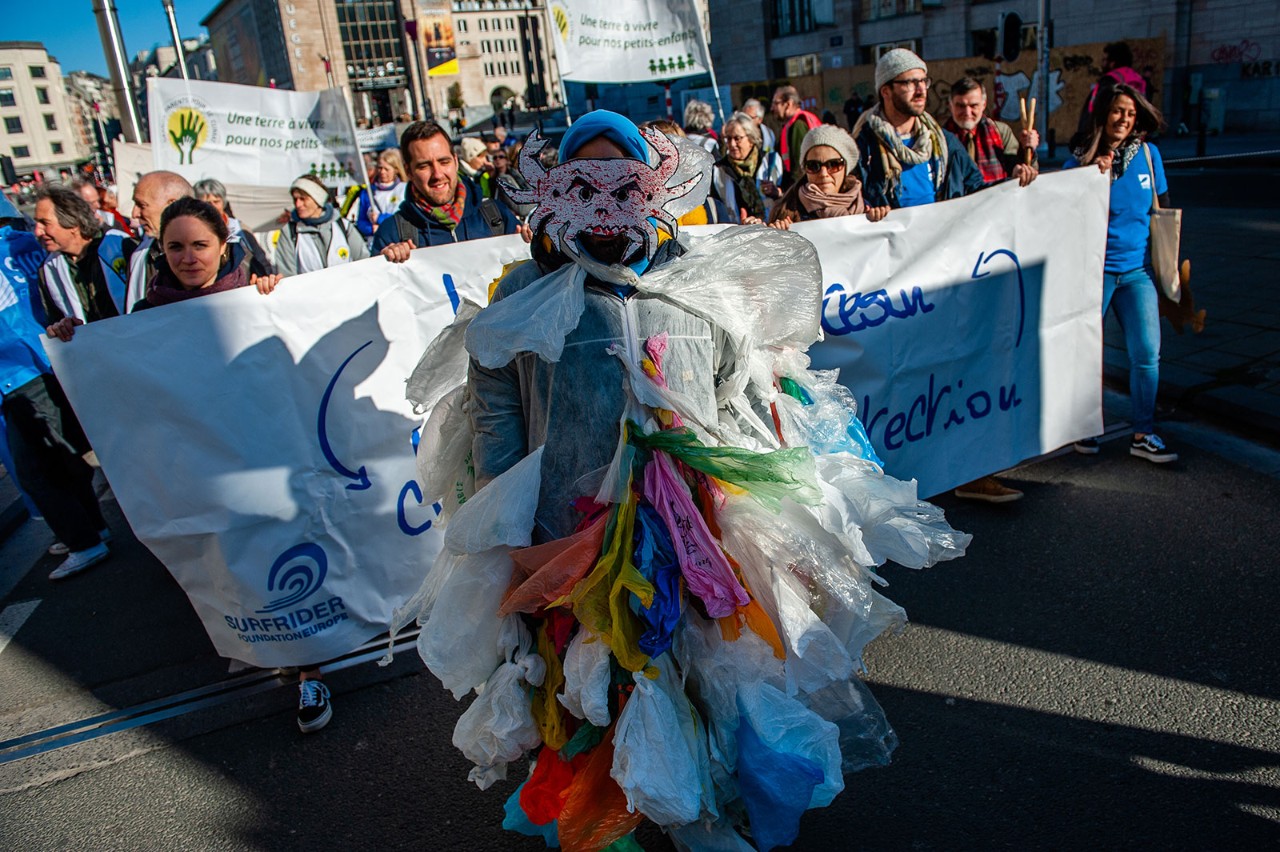
‘During the Arab Spring, I was sure of my views,’ a young PhD student told me at a 2019 conference on ethics and responsibility in the digital age. ‘As I joined the demonstrators, everything was good or bad, black or white. Later, I thought the world was just a lot of grey. But now I understand there is no white or black or grey. There is only space within which I have to learn to navigate.’
That student’s perception was born out of the emergence of big data and the surveillance economy. Distinguishing between perceptions of truth and what is just opinion or propaganda is increasingly difficult. We live in a post-truth world, with its targeted and curated transparency, where everything can be manipulated by those who control our news.
The post-Second World War baby boomers were raised to respect and trust the powers-that-be. There was a general acceptance that when washing powders promised to wash whiter, they probably did exactly that. How times have changed.
In 2020, we have the Millennials, raised on a diet of individualism and shareholder capitalism, and their Generation Z successors facing austerity and climate change. As they take their place as employees and consumers, many are disillusioned with the dysfunctional world left to them by their opportunistic parents.
A new primacy
Most companies understand that their future success depends on the support of their customers. But what many have not yet understood is that the people who will – or will not – confer that success have learnt to view corporate actions with a sceptical eye.
It is not by accident that the world’s most successful companies are adopting environmental, social and governance (ESG) objectives. When the US Business Roundtable released its revised statement of corporate purpose in August 2019, many signatories probably underestimated the implications of replacing shareholder primacy with stakeholder primacy.
Looking back on the #ClimateStrikes of 2019 and #BlackLivesMatter in 2020, only the most arrogant would fail to wonder how such ideas and expectations may influence future consumer behaviour. The Covid-19 crisis has only emphasised such questions.
Global webinar
ACCA is celebrating International Ethics Day on 21 October with a Big Conversation on Ethics and Sustainability
In the past 40 to 50 years, the oversimplification of purpose to profit has reduced the value of corporate culture, values and ethics
The story is all
The satellite company SES has understood the value of authentic stories in explaining the social and environmental importance of its activities. SES explains its value in terms of its impact on disaster recovery in a post-hurricane Caribbean, health and hygiene in Ethiopia, and information dissemination about Ebola or Covid-19 to under-resourced population centres in Africa.
Identifying with a value-creating purpose that reflects the things that customers, employees and other stakeholders care about increases loyalty, engagement and support – all essential to achieve high performance over time.
The rise of ESG
The ethics of any group are determined by the behavioural expectations of its members. Society sets the overarching rules, but any group can reasonably moderate these to serve a specific purpose. As these values become known – for example, in a business – they will attract like-minded people in the form of employees or consumers.
When businesses could adhere to the principle of shareholder primacy, their focus on maximising profits for shareholders allowed ethical concerns to be delegated to the legislature. Rio Tinto Zinc’s recent deliberate destruction of sacred sites in Australia to access high-grade iron ore deposits came because the company disregarded the opposition of the Aboriginal traditional owners.
Not all businesses act in this way. Unilever’s investments in personal hygiene initiatives in Kenya have led to dramatic sales growth, while Knorr’s efforts to fight malnutrition in Nigeria have been rewarded with enhanced trust and customer loyalty.
However, in the past 40 to 50 years, the oversimplification of purpose to profit has reduced the value of corporate culture, values and ethics. The introduction of ESG reflects the increasing need for businesses to measure their success in terms of social ethics that are influencing individual (consumer) behaviour. The appearance of B Corp certification and triple bottom-line reporting (people, planet and profit) has preceded EU directives on non-financial reporting standards.
With the writing on the wall, what must companies do?
Profit vs purpose
Long-term profitability is a function of future consumer behaviour. If the next generation is driven by concerns of increasing wealth disparity and social injustice, then ‘profit and share performance’ no longer suffices as a corporate purpose statement or key performance indicator.
If the customer’s expectation is nothing other than a cheap product, profits may be increased by suppressing costs, including allowing pollution or the use of bonded labour. But if the consumer is now concerned about the quality of outcome in terms of sustainability or social justice, such easy cost savings are no longer acceptable.
If individual customers seek evidence that producers are authentically concerned about the same things that they themselves are, then brand management is no longer a question of corporate image; it is a matter of the corporate story.
Perhaps it’s time to listen to the younger generation – before the competition does.





